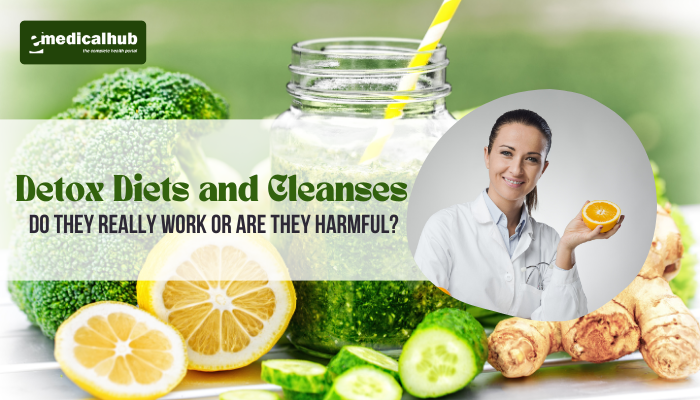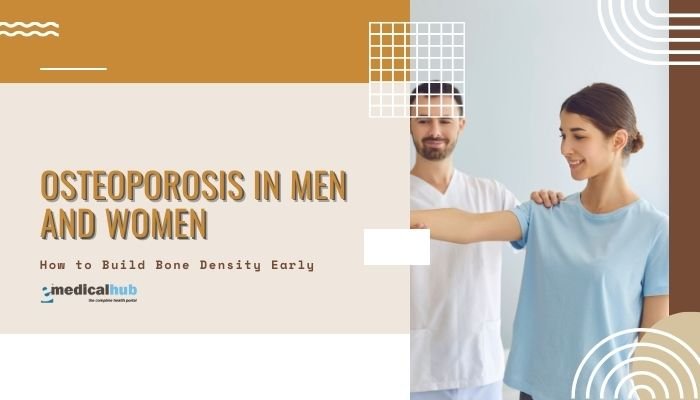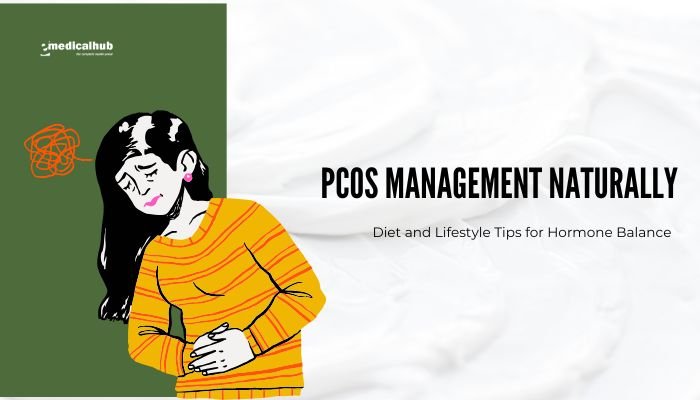Introduction
From juice fasts and “master cleanses” to herbal supplements promising renewed vitality, “detox diets” have become a multi-billion-dollar industry. Advocates claim they flush out toxins, jumpstart weight loss, or rejuvenate skin and energy.
Skeptics, however, question the scientific basis, pointing out that the body already has sophisticated detox systems—particularly the liver, kidneys, and lungs. So, are these regimens truly helpful for health, or do they risk nutrient imbalances and misleading claims?
This article explores the concept of detoxification, how the body naturally eliminates waste, and evaluates whether detox diets offer genuine benefits or pose potential harms. We’ll also look at possible signs that a detox might be helpful (e.g., if you rely heavily on processed foods) and examine why some people feel better after certain cleanses.
Ultimately, an informed perspective can help you decide if any detox plan aligns with your health goals—or if simpler, sustainable dietary improvements might achieve better long-term results.
Disclaimer: This content is for educational purposes and does not replace medical or nutritional advice. If you have a medical condition or plan a drastic diet change, consult a qualified healthcare professional.
What Are Detox Diets?
The Promise of “Removing Toxins”
Detox or cleansing protocols typically involve a short-term regimen—ranging from a few days to a couple of weeks—designed to purge “toxins” from the body. Common approaches include:
- Juice Cleanses: Consuming only juices extracted from fruits and vegetables, often with minimal solid food.
- Lemonade or “Master” Cleanses: Drinking a concoction of lemon juice, cayenne pepper, water, and maple syrup
- Herbal Teas and Supplements: Purported detox pills, diuretics, or laxatives.
- Fasting or Semi-Fasting: Restricting calories severely or focusing on certain food groups only (e.g., a raw-food detox).
Marketers often reference toxins from processed foods, pollution, or stress, implying these diets accelerate excretion. However, the term “toxin” is rarely well-defined in these contexts.
Main Goals People Pursue
- Weight Loss: Quick water weight drop or a feeling of a “reset.”
- Increased Energy: Freed from “toxin overload,” some anticipate more vitality.
- Enhanced Skin Clarity: Some mention improvements in complexion or reduced acne.
- Digestive Relief: Some cleanses promise relief from bloating or irregular bowel movements.
Yet, do these plans truly rid the body of substantial toxic loads, or do perceived benefits mainly stem from reduced junk food intake or a placebo effect?
How the Body Naturally Detoxifies
Liver, Kidneys, and Beyond
Human physiology is well-equipped to handle normal waste products:
- Liver: Metabolizes and breaks down harmful substances, excreting them via bile or blood to the kidneys.
- Kidneys: Filter blood, eliminating waste and excess water as urine.
- Colon: Expels indigestible residues.
- Lungs: Excrete carbon dioxide and other volatile compounds
Unless there’s an underlying health issue (liver/kidney disease), or exposure to high-level toxins, these systems generally function efficiently. Traditional detox diets seldom “boost” these processes in scientifically validated ways.
Toxins vs. Normal Byproducts
In everyday life, we produce metabolic byproducts (like urea, CO2) which the body disposes of. “Toxins” can include environmental pollutants (e.g., heavy metals, persistent organic pollutants), but dealing with them often requires medical interventions if exposure is severe. A short juice cleanse is unlikely to significantly alter your body’s heavy metal burden, for instance.
Do Detox Diets Have Potential Benefits?
Temporary Break from Processed Foods
One beneficial aspect is that many cleanses remove:
- Ultra-Processed Items: Eliminating sugary snacks, refined carbs, or high-sodium convenience meals, at least briefly.
- Excess Alcohol or Caffeine: Minimizing possible dependencies or negative effects.
Even if not “detoxing toxins,” cutting out unhealthy items can help reset taste buds, support weight management, or encourage mindful eating post-cleanse.
Increased Intake of Micronutrients
Juice cleanses or raw-food detoxes emphasize fruits and vegetables, potentially providing a burst of vitamins, minerals, antioxidants, or phytochemicals. This might lead to short-term improvements in energy for individuals who previously ate poorly.
Short-Term Weight Loss
Because many detox diets are low-calorie or low-sodium, you’ll likely drop water weight, with small amounts of fat loss if the cleanse is extended. Though weight often returns upon resuming normal eating, some people find the rapid initial drop motivational.
Potential Downsides and Dangers
Nutrient Deficiencies
Many detox regimens severely limit protein (particularly those reliant solely on juices) and healthy fats. Over multiple days:
- Muscle Catabolism: The body may burn muscle tissue due to insufficient protein.
- Fatigue or Dizziness: Low caloric intake and poor macronutrient balance reduce energy and disrupt blood sugar levels.
- Hypoglycemia: Especially if the plan excludes enough carbs or has high sugar from juices leading to roller-coaster glucose/insulin spikes and crashes.
Dehydration or Electrolyte Imbalance
Some cleanses push laxatives or diuretics (herbal teas, “colon cleanses”) that flush water and electrolytes, risking dehydration, low sodium or potassium. This can lead to muscle cramps, arrhythmias, or serious health complications in extreme cases.
Metabolic Slowdown
Prolonged ultra-low-calorie dieting may prompt the body to conserve energy, slowing metabolic rate. Over time, this can hamper sustained weight management. Rapid rebounds in weight might occur once normal eating resumes.
Interactions with Medication or Conditions
For individuals with diabetes, kidney issues, or gastrointestinal disorders, drastically altering nutrient intake can:
- Unbalance Blood Sugars.
- Stress Kidneys (especially high fluid shifts or altered electrolyte states).
- Irritate GI if there’s an underlying condition like IBS or celiac disease.
Always consult healthcare professionals if you have existing diagnoses.
The Psychology of Detox
Reset and Motivation
Some find psychological benefit in performing a short cleanse—like “turning the page” after a period of poor eating or to break sugar or caffeine cravings. This sense of a fresh start can catalyze healthier habits.
Risk of Disordered Eating
On the flip side, extreme detox diets might feed into a cycle of binge-purge mentalities. Restrictive patterns can intensify or mask an eating disorder, or foster guilt around normal foods.
Placebo or Actual Energy Boost?
When individuals cut out processed sugar, refined carbs, or alcohol, they might indeed feel better—less bloating, fewer sugar crashes. They attribute this improvement to “detox,” but it may simply be a consequence of eliminating harmful elements or overall improved hydration and nutrient intake.
A More Sustainable Approach to Detoxing
Balanced, Whole-Food Eating
Rather than short, extreme cleanses:
- Emphasize Fruits and Vegetables: Full of fiber, antioxidants, and micronutrients.
- Hydration: Enough water to support kidney function, reduce potential for toxins to accumulate.
- Lean Proteins: Poultry, fish, legumes, or tofu to maintain muscle.
- Healthy Fats: Avocados, nuts, seeds, olive oil for cell function.
Gradual Reduction of Unhealthy Items
- Cut Down Sugar: Replace sugary snacks with fruit or nuts.
- Limit Alcohol: Rather than total elimination for a week, consider moderate guidelines.
- Focus on Fiber: Helps regular bowel movements, arguably a more robust “cleanse” than any harsh purgative.
Lifestyle and Stress Management
Lowering your body’s burden of stress also helps the natural detox processes:
- Sufficient Sleep: Sleep is crucial for metabolic waste clearance in the brain.
- Regular Exercise: Encourages circulation, sweating, and overall metabolic health.
- Mindful Relaxation: Tools like yoga or meditation might reduce cortisol-driven issues that hamper healthy digestion and excretion.
Sample “Gentle Cleanse” Meal Plan (3 Days)
Day 1
- Breakfast: Warm water with lemon, followed by oatmeal with berries and walnuts.
- Lunch: Mixed greens salad with chickpeas, cucumbers, olives, olive oil & vinegar.
- Snack: Apple slices with almond butter.
- Dinner: Salmon or tofu with roasted broccoli and sweet potatoes.
- Hydration: Water or herbal teas (peppermint, chamomile).
Day 2
- Breakfast: Spinach and mushroom omelet, or tofu scramble with veggies.
- Lunch: Lentil soup with carrots, celery, onions, side of whole-grain bread if desired.
- Snack: Cucumber and carrot sticks with hummus.
- Dinner: Grilled chicken (or seitan) with sautéed zucchini, bell peppers, a drizzle of olive oil, and fresh herbs.
Day 3
- Breakfast: Smoothie (spinach, frozen berries, half banana, plain Greek yogurt or plant-based alternative).
- Lunch: Quinoa bowl with black beans, roasted peppers, tomatoes, lime-cilantro dressing.
- Snack: Unsweetened yogurt with fresh fruit.
- Dinner: Lightly seasoned fish fillet or tempeh, brown rice, steamed greens, drizzle of olive oil.
Note: This approach doesn’t starve your system but emphasizes whole foods, hydration, minimal added sugars, and no processed items. It’s a gentler “cleanse” aligning with natural detox pathways.
Frequently Asked Questions (FAQ)
Can a short detox fix long-term bad eating habits?
Not really. A 3- or 7-day cleanse might temporarily reduce sugar or processed foods, but consistent, balanced dietary habits over weeks and months are what drive lasting health improvements.
Do I need colonics or special teas to detox?
Generally no. The body’s normal elimination processes—bowel movements, liver, kidneys—are quite efficient. Harsh laxatives or colonics can disrupt electrolyte balance or gut microbiota.
Are fruit/vegetable juices better than whole fruits/veg for detoxing?
Whole produce includes fiber, crucial for satiety and gut health. Juices can deliver vitamins but are also higher in sugar without fiber. Moderate or partial juicing might be okay, but pure juice cleanses are less beneficial long-term.
Will I lose weight on a detox?
Likely some rapid water weight, and if the cleanse is low in calories, some fat. But results often revert upon normal eating unless new healthy habits are sustained.
Can a detox cure me of diseases or heavy metal poisoning?
Chronic diseases or heavy metal exposures typically require specialized medical interventions, not simple short-term diets. A standard “detox” has limited evidence for removing significant toxic burdens.
Conclusion
Detox diets and cleanses continue to attract attention—some swear by them for quick weight drops, renewed energy, or a “reset.” But the notion that a brief regimen can flush out broad, unspecified toxins is largely unsubstantiated by science. Our bodies inherently handle routine waste elimination via the liver, kidneys, bowel, and other organs—no fancy potions or extreme restrictions required. Nonetheless, certain short cleanses can prompt beneficial changes—cutting ultra-processed foods, sugar, or alcohol—for those who use it as a stepping stone to a balanced, wholesome diet.
If you suspect a specific intolerance or want to refresh your diet, a gentler approach that focuses on fresh produce, lean proteins, whole grains, and ample hydration might offer the same (or better) “reset” effect without the hazards of severe calorie deprivation or nutrient shortfalls. Ultimately, better health stems from sustainable daily habits, not from episodic fasts or harsh detox protocols. By blending mindful eating with a variety of nutrient-rich foods and consistent exercise, you can maintain an internal environment where your body’s innate detox systems function optimally—no cleanses necessary.
References
- National Institutes of Health (NIH), National Center for Complementary and Integrative Health. Detoxes and Cleanses: What You Need To Know. 2019.
- Klein AV, Kiat H. Detox diets for toxin elimination and weight management. J Hum Nutr Diet. 2015;28(6):675-86.
- National Health Service (NHS). Detox diets. 2020.
- Michalsen A, et al. Fasting therapy and FODMAP reduction. Complement Ther Med. 2018;41:75-82.
- Buettner S, et al. Efficacy of juice-based diets on metabolic markers. Nutrients. 2021;13(5):1654.
- Mayo Clinic. Colon cleansing: Is it helpful or harmful? 2019.
- Choi YM, et al. Effects of fruit juice vs. whole fruit. Am J Clin Nutr. 2013;98(6):1518-27.
- Freedman LS, et al. Dietary patterns and cancer prevention: WHO guidelines. Cancer Res. 2016;76(14):4189-4193.
- Ott A, et al. Toxins in the environment and recommended therapy. Public Health Nutr. 2015;18(7):1306-1311.
- Freedman RJ, et al. Weight loss maintenance in an RCT comparing short-term diets. J Am Diet Assoc. 2010;110(7):1072-79.
- Johnston BC, et al. Evaluating the effects of commercial diet programs on weight loss. JAMA. 2014;312(9):923-33.
- WHO. Healthy diet. Fact Sheet. 2020.



